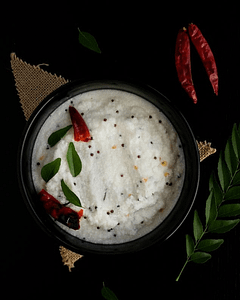Introduction:
South Indian cuisine is renowned for its diverse flavors, vibrant colors, and aromatic spices. But beyond its deliciousness, it offers a plethora of health benefits that contribute to overall well-being. Let’s delve into the reasons why South Indian food is not only a treat for the taste buds but also a boon for health
- Balanced Nutrition:
South Indian meals are a perfect blend of carbohydrates, proteins, healthy fats, vitamins, and minerals. Dishes like dosa, idli, and appam are rich in carbohydrates, providing sustained energy throughout the day. These are often paired with coconut chutney or sambar, which offer healthy fats and proteins. - Fermented Foods:
Fermented foods like dosa and idli are staples in South Indian cuisine. The fermentation process increases the bioavailability of nutrients, aids digestion, and promotes gut health by introducing probiotics. - Spices with Benefits:
Spices such as turmeric, black pepper, and curry leaves are frequently used in South Indian cooking. Turmeric’s active compound, curcumin, has anti-inflammatory properties, while black pepper enhances nutrient absorption. Curry leaves are a good source of antioxidants and aid in digestion. - Plant-Based Dominance:
South Indian meals often feature an array of vegetables, lentils, and legumes. These ingredients are rich in fiber, vitamins, and minerals, promoting heart health, weight management, and reducing the risk of chronic diseases. - Coconut – The Superfood:
Coconut is a prominent ingredient in South Indian cuisine. Its oil is known for its medium-chain triglycerides (MCTs), which can boost metabolism and support brain health. Coconut also contains lauric acid, which has antimicrobial properties. - Low in Unhealthy Fats:
Traditional South Indian dishes are typically prepared with minimal or no unhealthy trans fats. This makes the cuisine heart-friendly and ideal for those looking to maintain a healthy weight. - Diabetes Management:
The inclusion of whole grains, legumes, and a variety of vegetables in South Indian meals can contribute to better blood sugar control, making it a suitable option for individuals with diabetes. - Heritage of Ayurveda:
South Indian cuisine aligns with the principles of Ayurveda, a traditional system of medicine. The use of spices, herbs, and diverse ingredients in cooking is believed to have therapeutic benefits that promote overall health and balance. - Hydration and Refreshment:
South Indian beverages like coconut water, buttermilk (chaas), and herbal teas are not only refreshing but also aid in hydration and digestion. - Diversity in Preparation:
The wide variety of dishes in South Indian cuisine ensures that you never get bored. From steamed idlis to crispy vadas, tangy rasam to creamy payasam, each dish offers a unique blend of flavors and nutrients.
Conclusion:
South Indian cuisine stands out not only for its extraordinary flavors but also for the significant health benefits it offers. From supporting digestion to providing a well-rounded mix of nutrients, this culinary tradition has earned its place in the realm of wholesome and delicious meals. So the next time you savor a plate of dosa or relish a bowl of sambar, remember that you’re not just treating yourself to a feast of taste, but also nourishing your body in remarkable ways.



